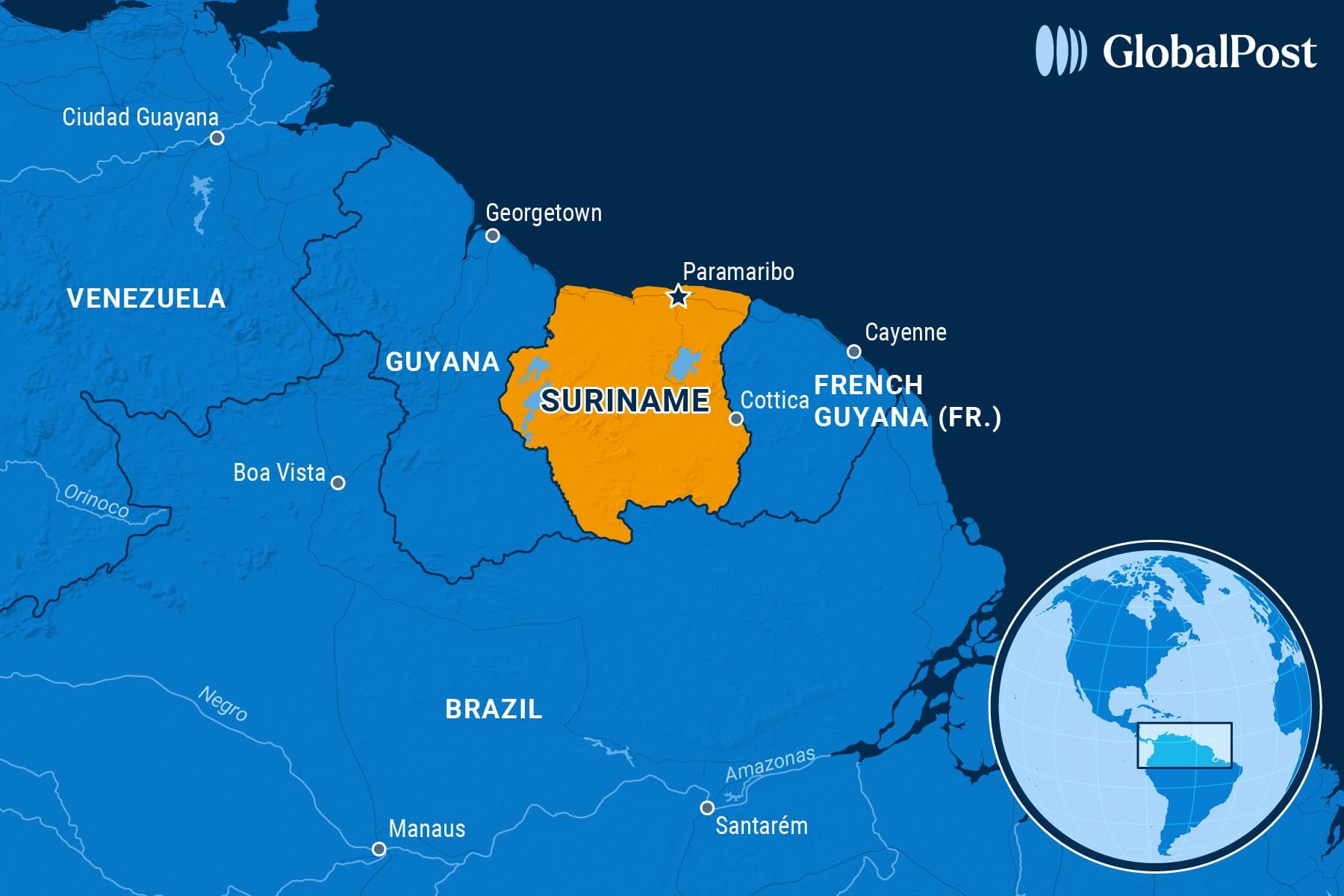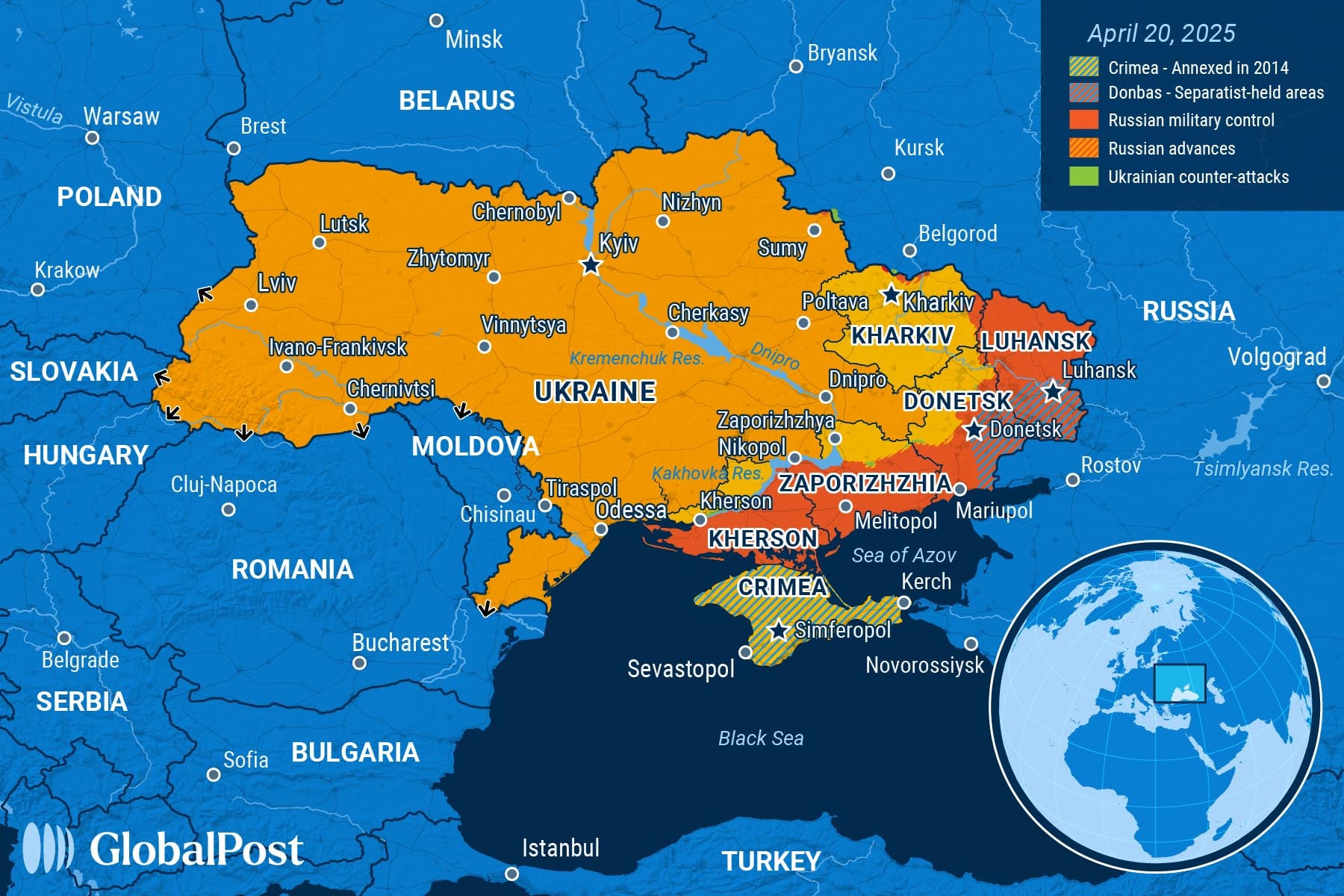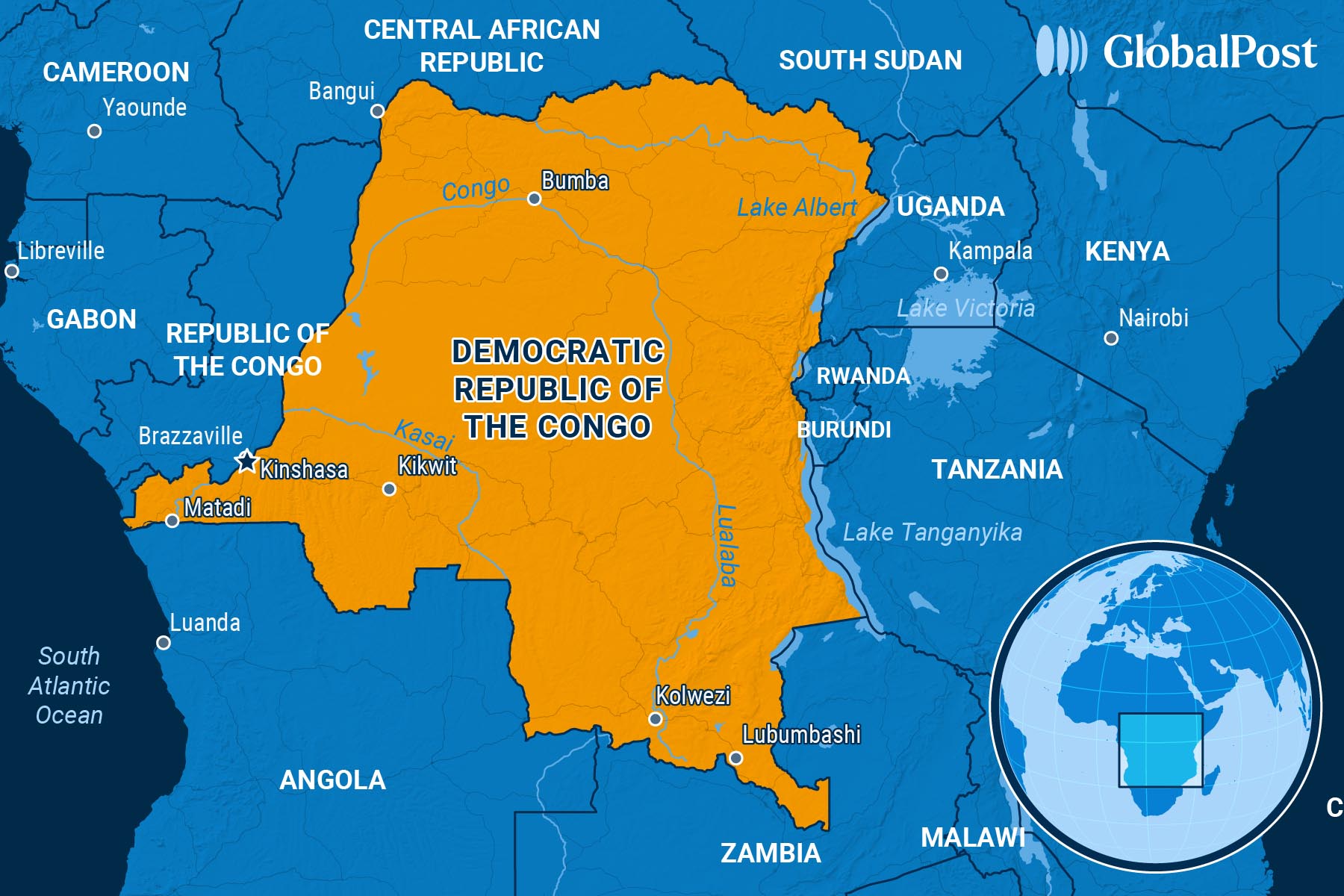Getting the House in Order: Suriname’s New President Has Her Work Cut Out For Her
NEED TO KNOW
Getting the House in Order: Suriname’s New President Has Her Work Cut Out For Her
SURINAME
 This month, Suriname got its first female president, Jennifer Geerlings-Simons, following an election in May, in which her party won by one seat.
This month, Suriname got its first female president, Jennifer Geerlings-Simons, following an election in May, in which her party won by one seat.
The doctor and former parliamentary speaker, who was elected leader by parliament on July 6, is now charged with steering the small South American nation of close to 650,000 people on the eve of a looming oil boom.
She has a lot of work to do, say analysts.
“Suriname is a country in which natural resource wealth, cultural diversity, political complexity, corruption, and danger form a tapestry of contradictions,” wrote the Center for Strategic and International Studies.
For the past 15 years, the former Dutch colony has been governed by three men who formed a plundering, corrupt triangle the country could not escape from – until now, say analysts.
The country was run by a military ruler in the 1980s, dictator-cum-democrat Dési Bouterse of the National Development Party (NDP), who came to power in two different coups, in 1980 and 1990. He returned to power after elections in 2010 and 2015 even as he was wanted on national and international warrants for drug trafficking and murder. He died in December while a fugitive from justice.
Another player in the triangle is former Vice President Ronnie Brunswijk, Bouterse’s former bodyguard, who turned against him and became a guerrilla leader in the 1980s. Wanted by the Netherlands for cocaine trafficking, he has been leading a party he started for Maroon voters (the descendants of escaped African slaves). He joined a coalition with the NDP before changing allegiance to form a government with Chandrikapersad Santokhi of the Progressive Reform Party, a former police chief who prosecuted Bouterse before he himself was elected president in 2020.
As a result of his dealmaking with Santokhi, Brunswijk, also a businessman with interests in timber and gold, was put in charge of the ministries that oversee forests and resources.
Meanwhile, Santokhi, as president from 2020 to 2025, appointed his wife to the supervisory board of the national oil company.
The problem, some analysts say, is the system. Suriname is one of the most diverse countries in the world, made up of Indians, Africans, Javanese, Indigenous groups, Chinese, Europeans, and others. Its system is designed to accommodate that diversity and promote consensus. However, some believe the fractured system has also allowed for corruption, nepotism, and the dominance of strongmen.
As a result, its leadership often gets its hands dirty.
Adding to the problem is Suriname’s status as a key drug-trafficking hub in the region. Almost all past presidents have been convicted of involvement with drugs. Bouterse’s son Dino is in prison in the United States for trafficking in drugs and arms – and attempting to help Lebanon’s Hezbollah set up a terrorist training camp.
By way of stark contrast, Greelings-Simons is scandal-free, with a reputation for getting things done. Suriname needs that desperately, say analysts.
That’s because things are about to change because of its natural resources. The Surinamese are now hoping to mimic neighboring Guyana, where the gross domestic product per capita increased 41 percent last year to almost $31,000 annually, more than four times greater than Suriname’s $7,600 per capita.
The recent approval of the $12.2 billion, 1.4 million-acre GranMorgu project in Suriname with French oil company TotalEnergies is expected to deliver similar windfalls. By 2028, the project is expected to pump as much as 220,000 barrels per day from offshore fields containing 760 million barrels in total.
Meanwhile, drillers have already generated more than $300 million a year for Suriname’s treasury for three years in a row – a previously unheard-of haul there.
That could cause a problem for a country that is so steeped in criminality and corruption and with a bankrupt economy. Still, its population, mired in poverty, is determined to share in the wealth and have a say in how it is spent, wrote Global Americans.
In this past election, voters told the Economist that they wanted something new, something more than the “men who only line their pockets,” and chose a woman as a change. They now hope she can deliver.
To do that, Karel Eckhorst of the International Monetary Fund told the magazine that the country needs more than wealth: “Oil isn’t the magic bullet,” he said. “Good governance is.”
THE WORLD, BRIEFLY
Taiwan Holds Historic Recall Vote Targeting Pro-China Opposition
TAIWAN
 Twenty-four Taiwanese opposition lawmakers will face a recall election this weekend in a vote that could reshape Taiwan’s legislature amid growing concerns over Chinese influence, Reuters reported.
Twenty-four Taiwanese opposition lawmakers will face a recall election this weekend in a vote that could reshape Taiwan’s legislature amid growing concerns over Chinese influence, Reuters reported.
The recall vote – the largest ever in the island nation – is targeting members of the opposition Kuomintang Party (KMT), which has faced criticism over its ties to China. A second round of votes involving seven more KMT lawmakers is scheduled for Aug. 23.
Recall votes are a constitutional right in Taiwan and can only be initiated against a lawmaker after his or her first year in office. To initiate such an action, more than 10 percent of registered voters in a constituency must sign a petition for a recall vote.
Saturday’s recall vote follows last year’s general elections that saw Lai Ching-te of the ruling Democratic Progressive Party (DPP) win the presidency.
However, the DPP lost its majority in parliament, securing only 51 of the 113 seats in the legislature. The KMT and its allies have 62 seats in total, allowing them to block spending, cut budgets, and pass measures intended to weaken Lai’s ability to govern.
Civic groups pushed for the recall against the KMT lawmakers, claiming that the party is undermining Taiwan’s national interests, such as cutting defense spending to counter any potential Chinese invasion.
The opposition party has rejected the allegations, insisting that their China outreach is pragmatic because Beijing refuses to engage with Lai’s administration.
The KMT labeled Saturday’s vote as “malicious recall” and accused the DPP of “dictatorship.”
Chinese officials, meanwhile, have accused Lai and his party of “engaging in dictatorship under the guise of democracy” and “using every means possible to suppress the opposition.”
China claims Taiwan as part of its territory and has increased military and diplomatic pressure on the neighboring island in recent years, the Guardian noted.
Analysts said a by-election will take place in three months if the KMT legislators lose their seats in Saturday’s vote. The KMT can run again in the upcoming vote and win back its lost seats.
Even so, the DPP could regain its majority after Saturday’s vote.
Ukrainians Protest after New Law Cracks Down on Anti-Corruption Agencies
UKRAINE
 Thousands of Ukrainians across the country hit the streets in protests on Tuesday after the country’s parliament quickly passed a bill to limit the powers of two key anti-corruption agencies, weakening the independence of institutions central to the country’s reform agenda and possibly hindering its path toward membership of the European Union, Reuters reported.
Thousands of Ukrainians across the country hit the streets in protests on Tuesday after the country’s parliament quickly passed a bill to limit the powers of two key anti-corruption agencies, weakening the independence of institutions central to the country’s reform agenda and possibly hindering its path toward membership of the European Union, Reuters reported.
At marches in major cities in the country’s west, demonstrators said they didn’t want to revert to Russian-style governance in Ukraine, referring to the administration of former President Viktor Yanukovych, who was ousted by a mass uprising in 2014.
In the capital Kyiv, protesters carrying flags and handmade signs chanted “Veto the law,” and “No corruption in government,” the Kyiv Post reported. In Lviv, they yelled, “Shame!” and “Corruption is the death of the future.”
At issue is the bill passed by parliament Tuesday that would allow the general prosecutor, appointed by the president, to take greater control of the National Anti-Corruption Bureau of Ukraine (NABU) and the Specialized Anti-Corruption Prosecutor’s Office (SAPO), two of the country’s main institutions fighting corruption.
It would also grant the general prosecutor the power to reassign cases and also to close NABU’s investigations if the defense requests it.
The amendment bill moved unusually fast through the legislative process, receiving committee approval, a parliamentary vote, and the signature of the speaker all within a single day, the newswire wrote.
It was passed with 263 votes in favor, 13 against, and 13 abstentions.
President Volodymyr Zelenskyy signed the bill into law late Tuesday.
Speaking to reporters in Kyiv, NABU chief Semen Kryvonos had urged Zelenskyy not to sign the bill, which he says is an attempt to “destroy” Ukraine’s anti-graft infrastructure.
Cracking down on systemic corruption is a core requirement for Ukraine to join the EU, with senior bloc officials expressing concern about the bill. In recent months, independent anti-graft investigators revealed corruption involving senior officials.
US officials under the Biden and Trump administrations have pushed for greater efforts to tackle state-level corruption.
Meanwhile, multiple law enforcement agencies carried out searches of NABU and SAPO on Monday, arresting NABU officials on charges ranging from alleged ties to Russia to administrative misconduct. NABU officials have denied the accusation and condemned the use of physical force during the raids, Euronews noted.
DRC and M23 Reach Peace Deal With Some Hopefully Skeptical
DEMOCRATIC REPUBLIC OF THE CONGO
 The Democratic Republic of the Congo (DRC) signed an agreement with M23 rebels to end fighting in the mineral-rich eastern part of the country over the weekend, even as analysts say they are cautious about celebrating any peace just yet, Africanews reported.
The Democratic Republic of the Congo (DRC) signed an agreement with M23 rebels to end fighting in the mineral-rich eastern part of the country over the weekend, even as analysts say they are cautious about celebrating any peace just yet, Africanews reported.
According to the Qatar-brokered ceasefire deal, the DRC government and the Rwanda-backed M23 rebels committed to a permanent ceasefire, a ban on aerial, ground, maritime, and lake-based attacks, as well as acts of sabotage, hate propaganda, and any attempt to gain new ground by force, Deutsche Welle wrote.
The agreement would also restore DRC authority across the eastern part of the country, including the reintroduction of the army, police, judiciary, and civil administration to areas currently under M23 control.
Some say that this text is particularly significant as it comes with a clear timeline: It must be implemented by July 29. Direct negotiations toward a comprehensive peace agreement are scheduled to start on Aug. 8.
The talks will be based on the peace deal signed between the DRC and Rwanda in the US last month. The goal is to sign a comprehensive peace agreement by Aug. 18.
Observers in Goma, the capital of the North Kivu province in eastern DRC, currently under the control of Rwanda-backed M23 insurgents, remain skeptical that the deal will last.
For example, tensions arose soon after signing, with the DRC government saying that insurgents agreed to withdraw from occupied areas, while the M23 rebel officials denied any plans to retreat.
Congolese civil rights activist Maude-Salomé Ekila told Africanews that this is just another deal that, like the ones that came before, sparks hope at the moment of signing only to be undermined later by the self-interest of the parties involved.
The conflict between the DRC and M23 rebels escalated in January, when M23 captured two of the DRC’s largest cities and seized key areas in the mineral-rich eastern part of the country.
The conflict has killed thousands of people and created one of the most significant humanitarian crises in the world, displacing millions of people.
DISCOVERIES
Color-Shifting Sharks
Prionace glauca is one of the rare animals that appear blue, which is why it is called the “blue shark.”
Now scientists are able to explain why.
“Blue is one of the rarest colors in the animal kingdom, and animals have developed a variety of unique strategies through evolution to produce it, making these processes especially fascinating,” researcher Viktoriia Kamska said in a statement.
New research recently presented at the Society for Experimental Biology Annual Conference in Antwerp, Belgium, found that the nanostructures producing this blue hue also seem to allow the shark to change color depending on its environment.
The team found that the secret behind the shark’s color is in the pulp cavities of its tooth-like scales – known as dermal denticles – that armor the shark’s skin.
Inside these cavities, guanine crystals reflect blue light, while melanin-filled vesicles, called melanosomes, absorb other wavelengths. Together, they create the shark’s vivid blue appearance.
The color results from the precise arrangement in thickness and spacing of guanine platelets, whose structure enhances reflection, while melanin absorbs stray wavelengths to deepen the color’s intensity.
“When you combine these materials together, you also create a powerful ability to produce and change color,” said researcher Mason Dean.
Through computer simulations, the team found that narrower spacing between guanine layers produces the shark’s signature blue hues, while wider spacing shifts the reflected color toward greens and golds, according to Cosmos Magazine.
Researchers hypothesized that this color change mechanism could be caused by environmental factors that affect guanine crystal spacing.
“In this way, very fine scale alterations resulting from something as simple as humidity or water pressure changes could alter body color, which then shapes how the animal camouflages or counter-shades in its natural environment,” said Dean.
For instance, the pressure applied to a shark’s skin increases the deeper the animal swims. In this case, the guanine crystals would be pushed closer together, darkening the shark’s color to better fit in with its surroundings.
“Not only do these denticles provide sharks with hydrodynamic and antifouling benefits, but we’ve now found that they also have a role in producing and maybe changing color too,” said Dean.
This discovery could help improve more environmentally sustainable manufacturing in marine environments, as structural coloration is less toxic and less polluting compared to chemical coloration.
